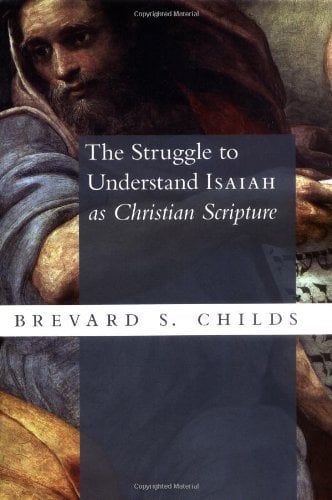The next member of the Alexandrian school could hardly be more different in some respects than Clement. I am referring to Origen (ca. 185-254 A.D.). Unlike Clement, Origen was indeed first and foremost a Bible scholar, an exegete. Nevertheless, his go to method was allegorizing of the Biblical text, sometimes in service of reconciling the Biblical tradition with the Greek philosophical one. One of the methods used in the Alexandrian approach to Scripture is what we would call the ‘word study’ method where one compares the meaning of a word in one context with various other uses of the word in other contexts. The problem of course is that words only have meaning in particular contexts. They don’t have meaning in the abstract. They have meaning as parts of phrases, sentences, paragraphs, whole works. It is not true that ‘in the beginning was the dictionary’. A dictionary is simply an after the fact study of how words are used in various contexts in order to figure out their various range of meanings.
The problem with allegorizing a non-allegorical text, like the aforementioned Genesis story of Rebecca and Abimelech is that all too often it ends up distorting or even effacing the original meaning of the text and turns into an exercise in eisegesis rather than exegesis, a reading into the text of things that are not there. However if one is not interpreting the text, but rather using its language and imagery for other, perhaps homiletical purposes as one does allegory, that is another matter. The problem with Origen is that it is not at all clear that he is merely doing the latter.
While Origen’s commentary on Isaiah is no longer extant, fortunately it is cited in the works of Eusebius, Jerome, and Cyril all of whom also wrote commentaries on Isaiah. More readily accessible directly is Origen’s treatment of hermeneutics in his Peri Archon 4.1-3 where he makes a basic distinction between literal and spiritual senses of the Word, with ‘spiritual’ apparently including moral and mystical senses. Origen in his commentary work spends enormous energy on specific mundane details of the text and does not deny the literal sense of the text, he just thinks it is less important, and if one dwells on the literal sense one hasn’t gotten to the heart of the matter. Why focus just on the wineskins and never drink the wine? Fortunately, Jerome translated nine of Origen’s homilies on Isaiah into Latin, so we can get a sense of his approach to Isaiah from this source. Noting the fact that Isaiah only had his vision in the temple after King Uzziah’s death, and only after his own purification, Origen does not dwell on the historical issues but moves directly to making the theological and ethical point— only the righteous can see God. “Similarly in Homily 8, Origen begins by speaking of the divine judgment on those who constructed idols in Jerusalem and Samaria, but then moves immediately to interpret the idols of the heart… Origen often employs the initial reader context to illuminate the historical context of the biblical text.” One might think this was just Origen’s approach to preaching to a Christian audience, but we see the same modus operandi in his commentary on John as well.
Origen found in Paul himself the justification for pressing beyond the literal sense of the text in texts like Rom. 7.14, 1 Cor.2.2,10,12,16; 9.9-10;10.11; 2 Cor. 3.6,15,16 and Gal. 4.24. Fair enough, and as we shall see in a moment, Origen will attend to the literal sense of Isaiah, but move quickly to its spiritual sense and application for his current audience. The bigger question his work raises is this—Is “the theological function of Scripture to be a living and continuing vehicle of the Spirit for divine revelation to the church”
My answer to this is yes, and no. No, in that it is still also an ongoing revelation for Jews, and furthermore for seekers after the Biblical God, such as Muslims. The problem with a Christomonistic or ecclesiomonistic interpretation of the Scriptures is that it ignores the Trinity, it ignores the fact that the OT is largely about the Father’s relationship with his Jewish people. It is not largely a Christological allegory. Yes, all of Scriptures is a living Word that may all appropriately be used by and used to address the church. Of course that is true. But the Hebrew Scriptures are still busily addressing the synagogue, and rightly so. God is not finished with his first chosen people yet. According to Rom. 11, they have a future, particularly they have a future when their Messiah returns to claim them. Furthermore, yes, as Origen thought, the Bible contains all we need to know for salvation. But, no, soteriology is not the only subject it addresses or should be seen to address. In particular, what the OT means by salvation is not belief in the crucified and risen Jesus. I agree with Childs that the critique of Origen as leading the church astray into allegory can be over done, but there is some truth to it. This becomes especially plain when we get to what looks more nearly like historical exegesis by the Antiochians, such as John Chrysostom who do not neglect the deeper spiritual issues the Biblical text raises, but also do not think one needs to allegorize the text to get at that ‘deeper’ meaning.













